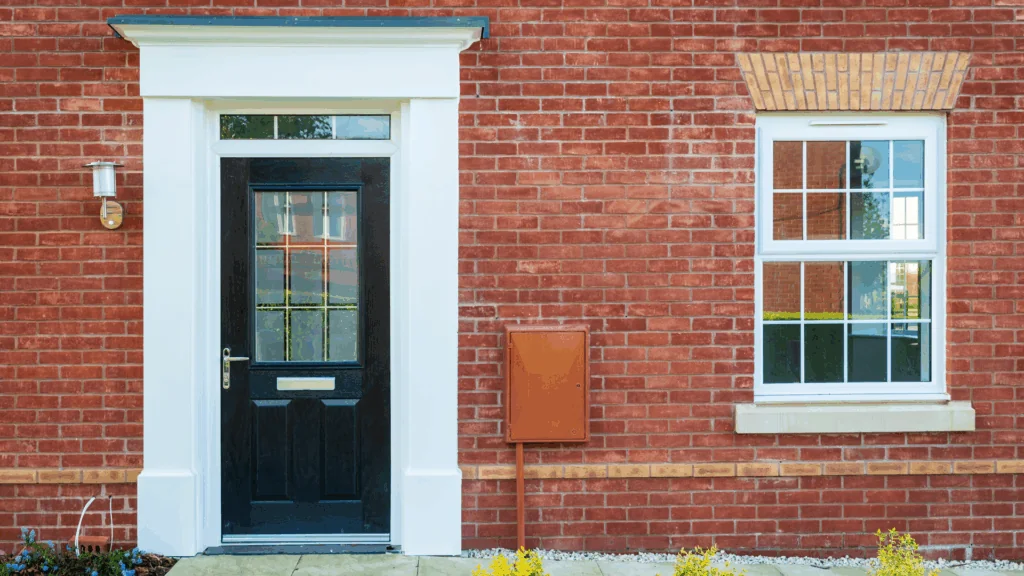- How Strict is Nationwide with Mortgage Applications?
- What’s the Typical Approval Timeline for a Nationwide Mortgage?
- What Steps Should You Take After Nationwide Declines Your Mortgage?
- Can You Appeal Nationwide’s Mortgage Decision?
- When is Expert Mortgage Advice Essential?
- Why Might Nationwide Reject Mortgage Applications?
- How Long Should You Wait Before Reapplying for a Mortgage?
- The Bottom Line
What Should You Do After Nationwide Declined Your Mortgage?

Receiving a ‘no’ from Nationwide on your mortgage application can be a real letdown. It’s not just about the disappointment; it’s also the confusion that follows.
You might be wondering, “Where did I go wrong?” or “What do I do now?” These feelings are normal, and you’re certainly not alone in this situation.
This guide is here to clear up the confusion and offer you practical steps to take after a mortgage refusal. We’re going to look into why Nationwide might have declined your application and provide you with helpful advice
How Strict is Nationwide with Mortgage Applications?
Nationwide, like any responsible lender, has its set of rules and checks when it comes to mortgage applications. They’re known for being thorough, which can sometimes feel a bit strict, especially if your financial situation doesn’t tick all the traditional boxes.
If you have a few blips in your credit history or your financial situation is a bit out of the ordinary, like being self-employed or having a variable income, you might find Nationwide’s criteria more challenging.
They look closely at your ability to repay the loan, so factors like your credit score, income stability, and even the type of property you’re looking to buy all play a part in their decision.
It’s not that they’re unreasonably strict; they’re just careful to lend responsibly. Understanding this can help you better prepare your application or find a lender that’s more aligned with your specific circumstances.
What’s the Typical Approval Timeline for a Nationwide Mortgage?
When you apply for a mortgage with Nationwide, the time it takes to get a response can vary. Generally, you’re looking at about two weeks for a straightforward application.
This is the time they need to check all your details, run credit checks, and make sure everything lines up with their criteria.
However, there are times when it might take longer. If your income sources are a bit complicated – maybe you’re self-employed or have multiple income streams – Nationwide might need extra time to look over your financials.
The same goes for if you’re buying a property that’s a bit out of the ordinary, like a listed building or something with unusual construction. These factors can add extra days or even weeks to the process, as they need more detailed assessments.
What Steps Should You Take After Nationwide Declines Your Mortgage?
Being declined for a mortgage by Nationwide can be a tough pill to swallow. But it’s not the end of the road. Here’s a step-by-step approach to what you should do next:
Pause and Reflect
Your first instinct might be to jump right into another application with a different lender. It’s best to hold off on that.
Rushing into another application without understanding why you were declined can lead to repeated rejections.
Understand the Reason for Rejection
Nationwide should provide you with the reason for your mortgage application’s refusal. It’s crucial to understand this reason.
Was it due to your credit history? Or maybe the property’s valuation didn’t meet expectations? Knowing the reason will help you address the issue.
Review and Rectify
If the refusal was due to something in your control, like an error in your application or an issue in your credit report, take steps to rectify it. This might involve correcting errors or working to improve your credit score.
Consider Seeking Professional Advice
A qualified mortgage advisor can be invaluable in understanding what went wrong and how to improve your chances next time. They can also guide you to lenders who might be more suitable for your specific situation.
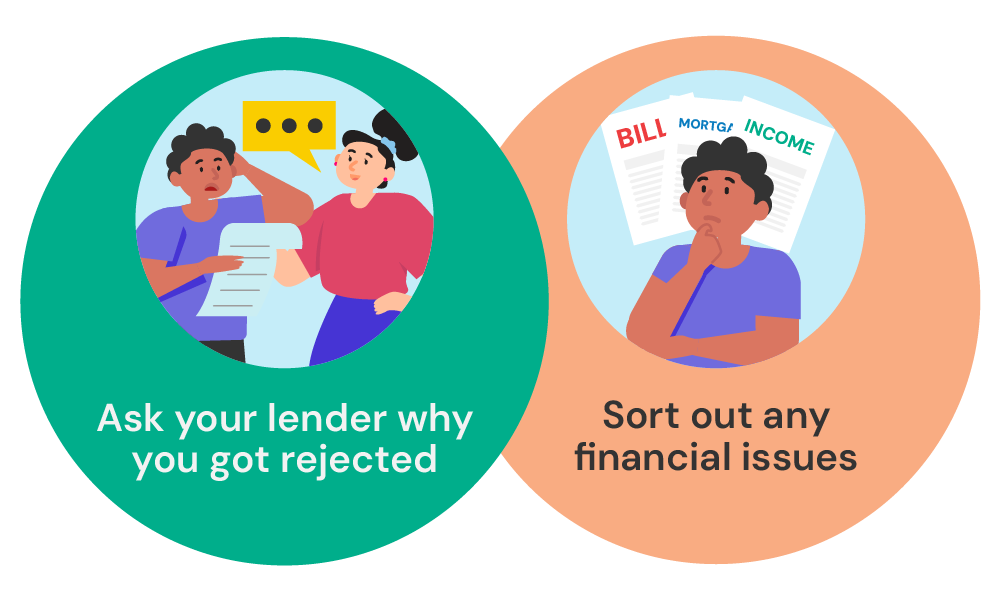
Can You Appeal Nationwide’s Mortgage Decision?
Yes, you can. This is something you can do if you feel they’ve misunderstood your situation or if things have changed since you first applied.
When appealing, make sure you’ve got all the right information to back up your case. This includes any new details about your finances or credit.
To start your appeal, you need to contact Nationwide. It’s best to do this in writing. Explain why you’re appealing and include any new information that might help.
Remember, an appeal doesn’t always change the decision, so it’s important to be clear and thorough in your approach.
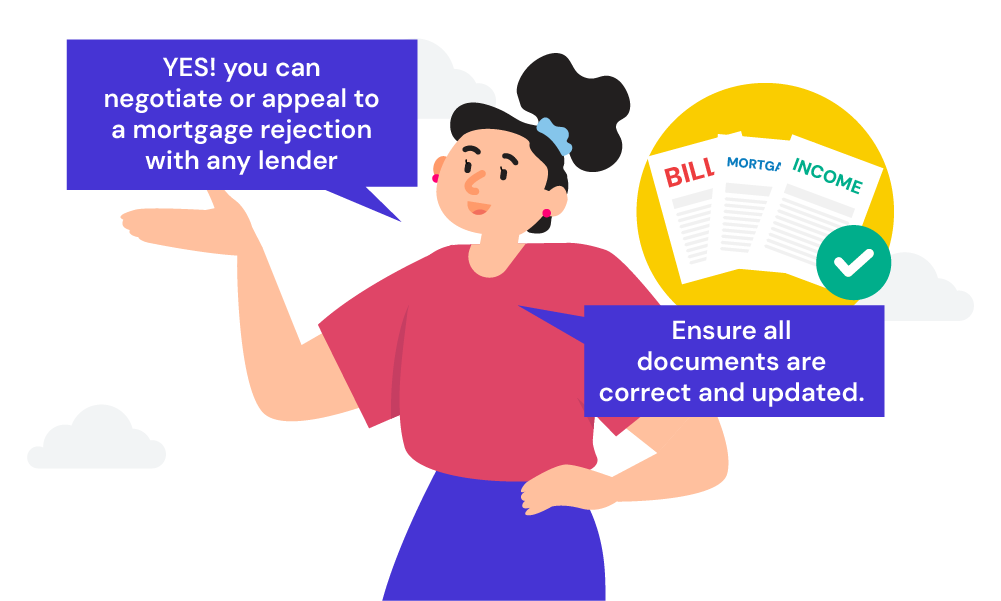
When is Expert Mortgage Advice Essential?
Getting a mortgage can be tricky, especially when your situation isn’t straightforward. If you’re self-employed or if your credit history isn’t perfect, getting advice from a mortgage expert can help.
Mortgage experts are great for understanding different lenders’ rules, like those at Nationwide. They know about all the different mortgage deals and can find the best one for you.
If your mortgage application is a bit unusual – maybe because of how you’re paying for your deposit or the type of house you want to buy – a mortgage expert can guide you on what to do next.
They’re also really helpful if you’ve been turned down for a mortgage. They can look at your application, suggest ways to make it better, and help you decide if appealing to Nationwide is a good idea.
So, talking to a mortgage expert can be a smart move to turn a no into a yes.
Why Might Nationwide Reject Mortgage Applications?
Applying for a mortgage with Nationwide and facing rejection can be disheartening. Let’s delve into the common reasons behind such refusals, presented differently from the competitor’s content for uniqueness:
History of Bad Credit
A significant factor for Nationwide’s mortgage rejections is an applicant’s credit history. Issues like unpaid debt management plans, bankruptcy, or repossessions are red flags.
While Nationwide may consider those with minor credit issues, severe cases often lead to application decline.
Property Valuation Shortfalls
Nationwide evaluates the property’s worth during the mortgage process. If your chosen property is appraised for less than your loan amount, or if there are structural concerns, Nationwide might not proceed with the mortgage.
Independent property valuations or detailed surveys can give you a clearer picture of the property’s value.
Inadequate Address History
Providing a substantial address history, typically around 3 years, is a key requirement for Nationwide. If you fall short of this, your application may be declined.
However, there are lenders with more flexible criteria regarding address history.
Self-Employment Scrutiny
For self-employed individuals, Nationwide requires evidence of consistent income, usually two years of accounts.
If your financial records are limited or show variability, this could impact your mortgage approval.
Income Composition Issues
If a large portion of your income comprises bonuses or commissions, Nationwide may be cautious. They prefer stable and regular income for mortgage assessments.
Additional Circumstances Leading to Decline
Other scenarios that might lead to a rejection include employment on a seasonal contract, repaying payday loans, receiving income in foreign currency, applying with a guarantor, or seeking a mortgage for properties outside standard geographical areas.
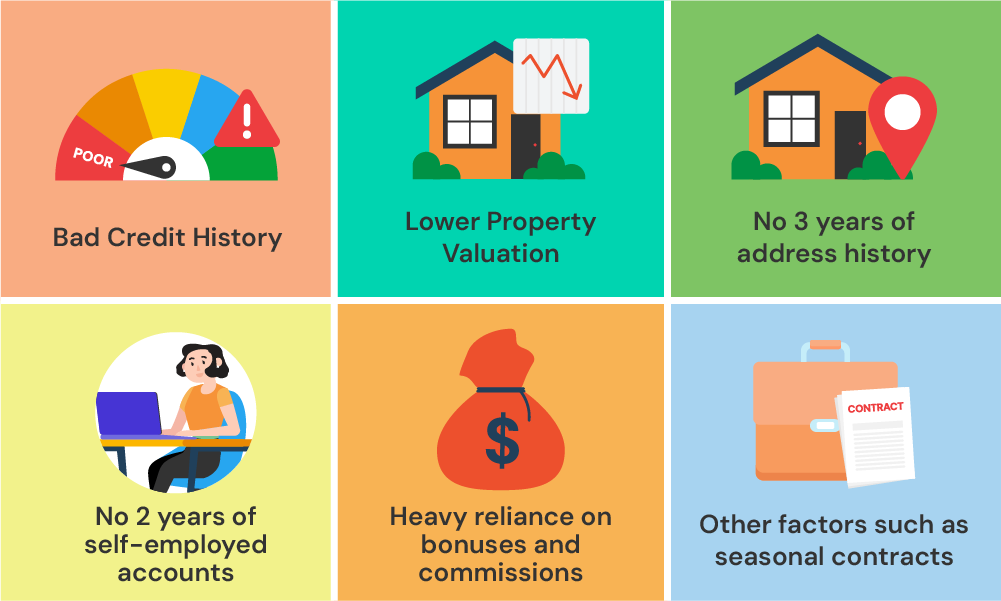
How Long Should You Wait Before Reapplying for a Mortgage?
Deciding when to reapply for a mortgage after a refusal can feel uncertain. It’s important to understand the best time to reapply depends on why Nationwide turned you down.
If it was due to credit issues, you might need to wait until your credit score improves. This involves settling debts promptly and correcting any inaccuracies on your credit report.
However, if the refusal was related to a lack of savings or property valuation concerns, you might be able to reapply sooner once these specific issues are resolved.
It’s all about ensuring you have addressed the reasons for the initial rejection before making another application.
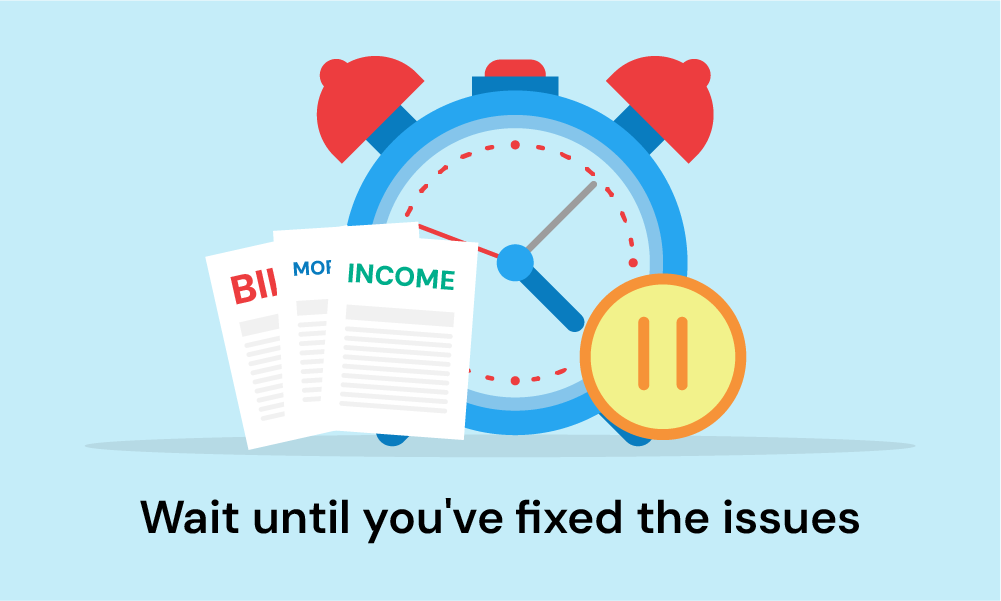
The Bottom Line
Getting a ‘no’ from Nationwide on your mortgage application can be tough, but it’s not the final word on buying your home.
It’s important to understand why you were refused. Maybe it was about your credit score, the property’s value, or your job situation.
A big help in this situation is talking to a mortgage advisor. They know a lot about mortgages and can give you advice that fits your own story.
They can explain why Nationwide might have said no, help make your application better, and find other lenders who might say yes.
If your lender’s decision has left you unsure about what to do next, don’t worry. We’re here to lend a hand.
To take a good step towards sorting out your mortgage, get in touch with us. We’ll introduce you to a top mortgage broker who can give you the right advice for your mortgage needs.
Get Matched With Your Dream Mortgage Advisor...

Frequently Asked Questions
How quickly can I expect a mortgage offer after property valuation with Nationwide?
Usually, Nationwide tries to give a mortgage offer within a week after they check the property. The check, or valuation, often takes about five days.
If everything looks good, you should get your offer soon after that. While you’re waiting, it’s a good idea to talk to a mortgage broker to make sure you’re getting the best deal.
Is gambling history a barrier to getting a mortgage with Nationwide?
No, just having gambling on your bank records doesn’t mean Nationwide will say no to giving you a mortgage.
The key is that your gambling should be under control. But if gambling is your job, you might need to look at special mortgage options for your kind of income.
Check out our article about mortgages for gamblers for more details.
What does a 'Referred' decision in principle from Nationwide indicate?
A ‘referred’ decision in principle means Nationwide needs to conduct further reviews, often involving an underwriter. This could be due to verification issues or credit report concerns.
If you’re worried about potential rejection, a conversation with a mortgage broker can help clarify your position or find alternative lending options.
Nationwide initially agreed to an Agreement in Principle, but then declined my application. What should I do?
Agreements in principle are not guaranteed mortgage offers; they are based on preliminary information.
If Nationwide later declines your full application, first understand why. This information can help you and your mortgage broker find a solution, whether that’s appealing Nationwide’s decision or finding a more fitting lender.
>> More about What Should You Do After Being Declined For Mortgage?

